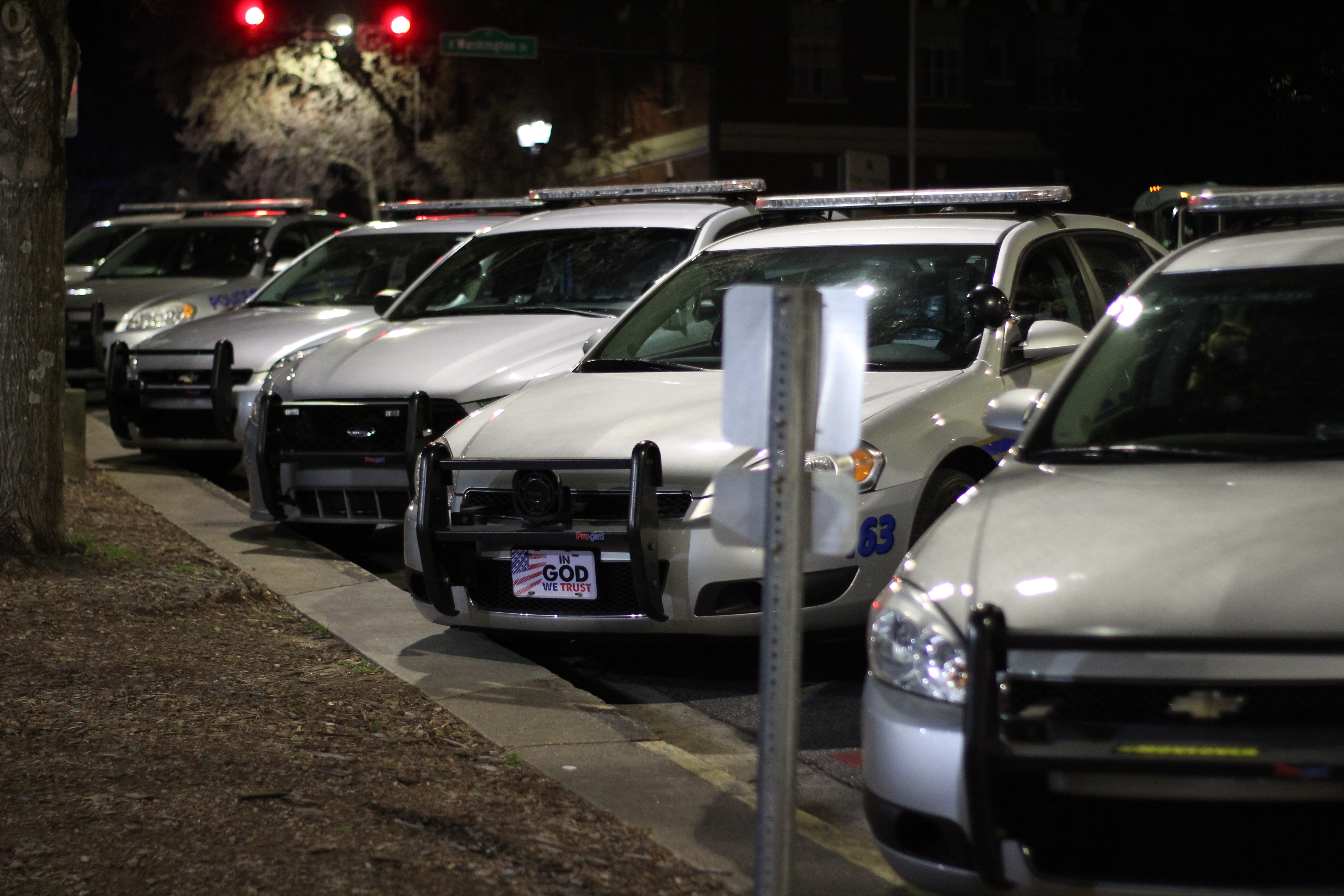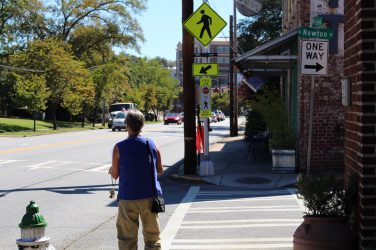Since 2007, the number of DUI arrests in Athens-Clarke County has decreased steadily from 827 cases in 2007 to just 350 cases in 2018.
Two factors may contribute to this decline: a decline in the number of police officers and fewer people choosing to drive drunk.
Why It’s Newsworthy: DUIs are a prevalent public health crisis that the Athens-Clarke County Police Department is working to combat.
Since 2016, the number of resignations from the ACC Police Department has increased each year with 40 resignations in 2018. Five officers have already resigned in 2019.
The number of resignations do not show a total loss of officers, says Geoffrey Gilland the public information officer for the ACCPD, because at any given time the department is adding and training new officers. However, the ACCPD is not replacing officers at the same rate that they are resigning.
Gilland says that this trend is not unique to Athens, but that there is a national trend of a decline in the number of police officers.
The Highway Enforcement of Aggressive Traffic, or HEAT unit, prioritizes traffic-related incidents with specially-trained officers who are experts in these kinds of cases. Adding this unit is one way the ACCPD has increased efficiency even with a net loss of officers.
In 2015, the Athens police department created its HEAT unit to primarily deal with traffic cases involving aggressive and impaired drivers, which has since made over 25 percent of all DUI arrests in Athens each year.
Officer Vincent Schill, an ACC senior police officer and member of the HEAT unit, says that the mere presence of the HEAT unit acts as a deterrent to drinking and driving.
Gilland says that the HEAT unit is a great asset because those officers are dedicated to a narrower goal of keeping highways safe. This focus allows for specially trained officers to deal with DUI and other traffic violations in a more refined way than other uniformed patrol officers.
Schill says that enforcing DUIs has become more difficult in recent years for officers who are not specifically trained in HEAT. Changes from Georgia Supreme Court decisions have affected the way officers need to interact with people who are suspected of driving while intoxicated.
In 2015 Williams vs. Georgia established that anyone who submits to a breathalyzer test or other chemical test must do so freely and voluntarily. Earlier this year the Georgia Supreme court also issued a decision in Elliot vs. Georgia that disallowed someone’s refusal to submit for a breathalyzer test to be held against them in a court of law.
According to Schill, HEAT units are a great step in preventing more DUIs and delegating well-trained officers to enforce DUI laws by conducting arrests and processing these cases.
Ride-sharing Apps Linked to Fewer Alcohol-Related Traffic Accidents
According to ACC Solicitor General C.R. Chisholm, the emergence of ride-sharing apps like Uber and Lyft combined with an increase in the number of living spaces downtown contribute to this decline. Uber was founded in 2009 and came to Athens in 2014.
In 2015, Uber in conjunction with Mother’s Against Drunk Driving published a study which showed that, in cities across the country, Uber sales peaked at times when most drunk driving accidents would normally occur.
The study also shows a decrease in alcohol-related car-accidents since Uber’s launch in 2012, and finds that 88 percent of respondents over the age of 21 agreed with the statement “Uber has made it easier for me to avoid driving home when I’ve had too much to drink.”
Uber and MADD also launched an initiative to “eliminate any excuse for drinking and driving” in 2018.
Natalie Martin, a senior at the University of Georgia, thinks that ride-sharing apps have made it easier to travel after a night of drinking in Athens, particularly from downtown to her apartment late at night. Although Martin often acts as the designated driver for her friends, she says that Uber and Lyft come in handy on nights with less planning.
“It’s honestly just better sometimes to just not bring my car into the situation or [bring] driving into the situation, because I don’t know how the night is going to play out or expect what like exactly what will happen,” Martin said.
Gilland and Chisholm both contend that the emergence of ride-sharing apps coupled with an influx of downtown apartments give people easy ways to avoid drinking and driving. However, Gilland also suggests that people prioritize driving safely now more than they used to.
“It’s kind of a cultural shift away from drinking and driving,” Gilland said. “I think there’s more awareness on the part of young people than there was in the past.”
Raphaëla Alemán is a third-year journalism and cognitive science major at the University of Georgia.








